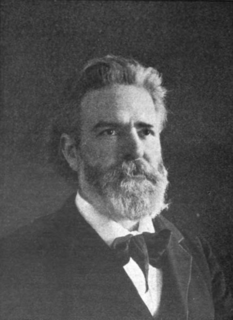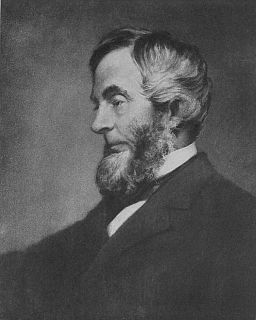A Quote by John Ruskin
That which seems to be wealth may in verity be only the gilded index of far reaching ruin
Related Quotes
Creating everlasting works is possible only being ducked in Verity; and gaining verity is possible only from the god. The one who given the ability for creation to, it is given the ability for immortality to. This ability is the substance not only of the human beings, but it can be seen in animals; birds and insects.
A book may lie dormant for fifty years or for two thousand years in a forgotten corner of a library, only to reveal, upon being opened, the marvels or the abysses that it contains, or the line that seems to have been written for me alone. In this respect the writer is not different from any other human being: whatever we say or do can have far-reaching consequences.
It is true that so far as wealth gives time for ideal ends and exercise to ideal energies, wealth is better than poverty and ought to be chosen. But wealth does this in only a portion of the actual cases. Elsewhere the desire to gain wealth and the fear to lose it are our chief breeders of cowardice and propagators of corruption. There must be thousands of conjunctures in which a wealth-bound man must be a slave, whilst a man for whom poverty has no terrors becomes a freeman.
Wealth brings noble opportunities, and competence is a proper object of pursuit; but wealth, and even competence, may be bought at too high a price. Wealth itself has no moral attribute. It is not money, but the love of money, which is the root of all evil. It is the relation between wealth and the mind and the character of its possessor which is the essential thing.
Australia is a very healthy country which goes along with the fact that it's very high on the Human Development Index, high wealth, good levels of education. So Australia ranks right up there, second or third on the Human Development Index. And Indigenous Australians, if you treated them as if they were a separate country, would rank probably about 100th or below 100.
Anyone, without any great penetration, may distinguish the dispositions consequent on wealth; for its possessors are insolent and overbearing, from being tainted in a certain way by the getting of their wealth. For they are affected as though they possessed every good; since wealth is a sort of standard of the worth of other things; whence every thing seems to be purchasable by it.
Every sunset which I witness inspires me with the desire to go to a west as distant and as fair as that into which the Sun goes down. He appears to migrate westward daily and tempt us to follow him. He is the Great Western Pioneer whom the nations follow. We dream all night of those mountain ridges in the horizon, though they may be of vapor only, which were last gilded by his rays.
If we understand the dangers of materialism, it will help liberate us to experience the joys of Christ-centered stewardship. Jesus speaks of the "deceitfulness of wealth" . The psalmist warns, "Though your riches increase, do not set your heart on them" . The dangers of materialism are far-reaching. We should not think that we're immune to the value-changing nature of wealth.
What does it mean to grow rich? Is it to have red-blooded adventures and to make a ‘fortune,’ which is what brought the whalers and other entrepreneurs north? Or is it, rather, to have a good family life and to be imbued with a far-reaching and intimate knowledge of one’s homeland, which is what the Tununirmiut told the whalers at Pond’s Bay wealth was? Is it to retain a capacity for awe and astonishment in our lives, to continue to hunger after what is genuine and worthy? Is it to live at moral peace with the universe?






































